For far too long there has been a bird that North American birders have mocked, derided, persecuted, hated, and, perhaps worse of all, ignored. It is a common bird, seen in cities, suburbs, and agricultural lands. One reason it is so widely disliked is its ubiquity, another is the fact that it is an introduced species. It is accused of driving native species out and it has the protection of the Migratory Bird Treaty Act withheld from it. The species I refer to is, of course, the House Sparrow Passer domesticus. But the lowly House Sparrow does not need to stay in the realm of the hated, the persecuted, the vilified. If Philip Morris can become Altria and if Blackwater can become Xe, then why can’t the House Sparrow be rebranded as well?
Ladies and gentlemen, let me introduce you to the Black-throated Brown Warbler Dendroica domesticus.
No longer will the House Sparrow be called a trash bird; birders will instead seek out the Black-throated Brown Warbler like they do with every other bird with warbler in its name. The name change will only apply in the western hemisphere so birders from the old world have reason track down the Black-throated Brown Warbler and excitedly get a tick on their checklist. Sure, they may be a bit puzzled at the similarity between the two species but if we can trick them into thinking that there is more than one Empidonax flycatcher, well, they’ll tick the Black-throated Brown Warbler and like it.
We’re sure some “ornithologists” and “taxonomists” will be very upset with what must seem like a very casual and unscientific approach to determining where in the tree of life the branch that contains the Black-throated Brown Warbler belongs. But, really, who pays any attention to them at all? Once our multi-million dollar advertising and rebranding campaign hits the market they will return to their laboratories and specimen cabinets and their natural state – completely ignored. We’re sure that some creaky old birders will shake their fists at the renaming as well, most likely while muttering about English Sparrows, but we can distract them by pointing out that Wheel of Fortune is coming on the television and they will soon forget all about why they got angry in the first place.
Sure, this is a big change and change is scary. But at the end of it there will be a new species of wood-warbler breeding in every city and town across the Americas, and, really, that has to be good for conservation, right? The more wood-warblers the better? Obviously if you are opposed to this change you are opposed to a massive increase in the number of wood-warblers and are therefore as anti-environment as BP. There, it’s been said. Now jump on the warbler train or be recognized as being as bad as the company at the root of the worst environmental disaster in American history.
You’ve come around now, right? We thought so. So, moving forward, just remember to refer to the chirpy brown-and-black bird you find all over the place by its proper name, Black-throated Brown Warbler Dendroica domesticus, and everything will be just fine.
(We originally published this post in May 2010, but share it today to celebrate World Sparrow Day!)


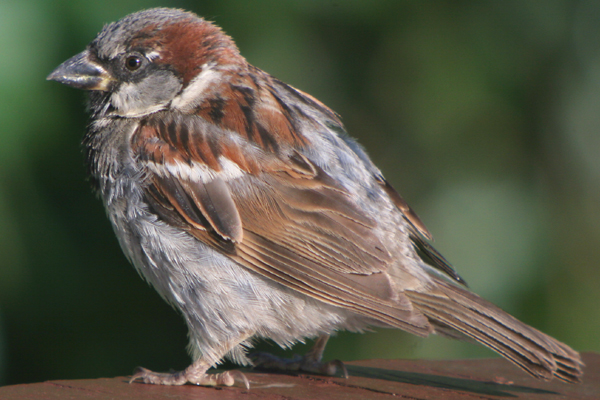
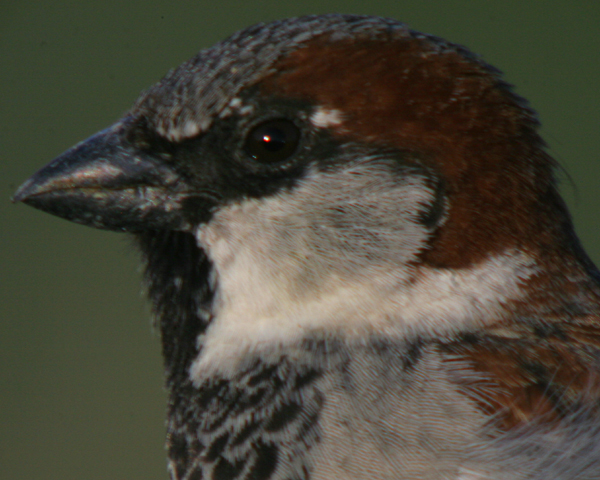




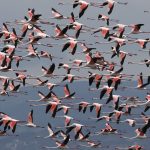



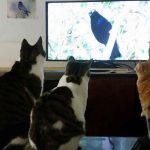
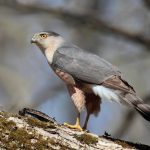
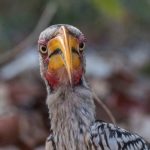
I would argue you don’t even need to change the scientific name. If a Tanager can be a Cardinal, why can’t a Sparrow be a Warbler?
This is a good idea, but I don’t think it goes far enough. You haven’t posted a self-consciously faux-lo-fi video about Black-throated Brown Warblers on Youtube in the hopes that it will go viral, for one thing.
Excellent post. I’m on board.
Just when I accepted this bird as a house sparrow, and not an English sparrow, now you propose another name change. Never never, enough said, besides the Wheel of Fortune is coming on.
Having said that this little bird has also reached South America and is expanding his empire like the English empire did many yeas ago. The difference is that he does it without greed and finds special niches where his species can survie. I am curious to find out if he is capable of displacing other native species that grow here (South america) like the Rufous-collared Sparrow. If have seen this bird only once here in Pululahua Geobotanical Reserve and I have counted him as a new bird. For me a bird is a bird.
Great, Now I hate all warblers.
Thanks Corey.
Gosh Corey, Its nice to see you dangling your toes into the waters of Orthonology {word botching}. I have been referring to those LBJ’s as BT browns for a long time now. But don’t stop there: As a member of QCBC you should be aware of and be using our other requisite remonikerizations. Like Lawnpecker instead of Flicker. Brown Freeper instead of Great-crested Flycatcher, and Varying Warblio for Warbling Vireo… to name a few.
Oh please! It is an Imperial Weaver Finch if you are on the continent, or a Royal Weaver Finch in the UK. They do hybridize in Normandy, where you have, obviously, the Imperial/Royal Weaver Finch…or sometimes the much rarer Royal/Imperial Weaver Finch (has to do with the thickness and taper of the beak). Down around the Black Sea, there is a race called the Emperor’s Weaver Finch, which comes, presumably, from further East. In certain (rustic) regions in Northern Italy they make a very nice Weaver Finch soup, but they don’t seem to be too picky about the variety. Any Weaver Finch will do in a stew.
I am 80% certain that I saw TWO black-throated brown warblers tonight in my backyard, I believe my FOS. They were foraging high up in the canopy. Oh no, wait. They were reclusive, retiring in the underbrush of shrubs. No, wait. They were skulking. Yes, skulking and yet they were milling about busily. I wish I could say 100% certain, but I think 80% would suffice for an official rarity report to the NYS Ornithological Association. Perhaps there is an irruption of BLTHBRWA afoot?
In Australia we gave up on warblers & renamed them gerygones!!! Any black-throated brown warbler (house sparrow) that makes it to Western Australia is rapidly removed by the Department of Environment Conservation! We have to go interstate or overseas to see them!
On a related topic (sorta), I was birding with an experienced birder from Maine several weeks ago, and he had never heard the term “BT Blue”. Or BT Green. Are these not universal terms?
Sadly our Black-throated Brown Warbler population died out a few years ago. When one is seen in the area now the notification goes out on the watch list and birders flock to see it. So guess the more exotic name is befitting its status here in our little community.
If other species don’t show up at my bird feeder, is that the House Sparr…….er, Black Throated Brown Warblers’ fault ? Actually, they are very tolerant of the one or two Cardinals.